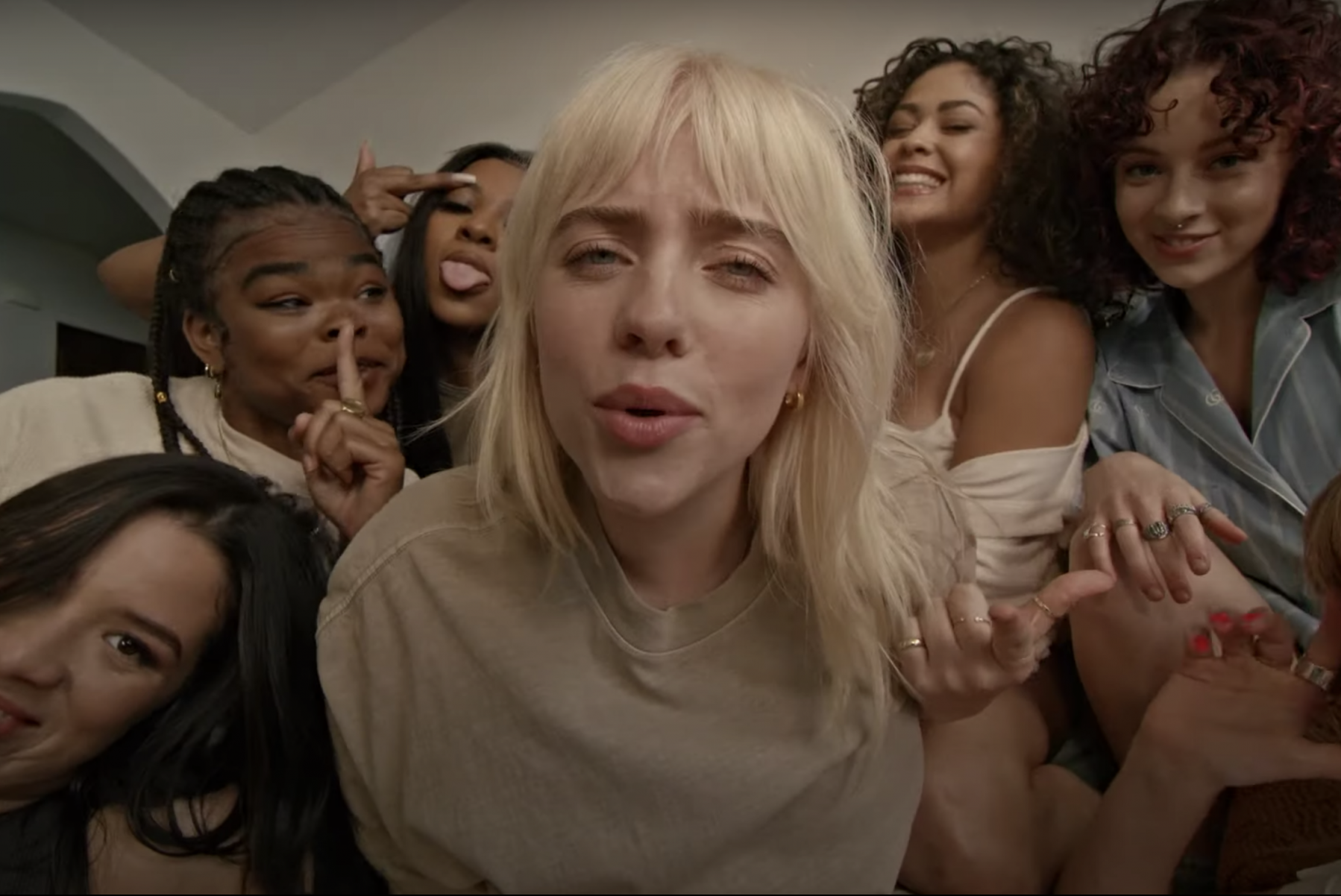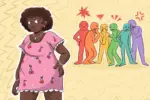If you’ve been online at any point in the past 10 years, you’ve probably seen the word “queerbaiting” tossed around.
The word has been defined as a marketing tactic that hints at queer content to capitalize on a wider audience without including any actual representation. Shows like CW’s “Supernatural” and MTV’s “Teen Wolf” have made use of this trope by hinting toward queer relationships or queer characters, but never truly delivering on the promise.
The Problem With “The Lost Cause”
Real people, however, are a touch more complicated than the average television character. That much has been made evident by several recent controversies, with the latest involving Billie Eilish. The music video for her song “Lost Cause,” which currently has over 54 million views, features Eilish and her friends dancing and acting playfully with each other at a slumber party. The video does show the girls getting handsy, with body language that some considered to be too close to be purely platonic. A good number of viewers wondered if this meant the popular singer was coming out or queerbaiting.
Eilish later fanned the flame by posting pictures on Instagram with the caption “I love girls,” which many assumed meant she was coming out or, if nothing else, hinting that she wasn’t straight. But after the controversy started to blow up, Eilish reacted to the outrage by liking an Instagram post that said, “This fandom is so embarrassing sometimes, like why would you go in someone’s comments and say something that you literally don’t even know is true and something y’all LITERALLY MADE UP, sometimes y’all are so dumb. Some of you just need to learn how to mind your business.”
Despite this pointed response, people continued to criticize Billie Eilish for her music video and Instagram post for invoking queer imagery as a straight woman. Twitter user @EM1iN3M, for instance, expressed that the video both fetishized queer women and treated their relationships as invalid “because it’s just how straight best friends ‘act’ despite them flirting/being close to kissing each other.” They go on to state that Billie Eilish is profiting off of a marginalized group that she does not belong to. Others similarly discussed how the “just friends” argument sounds eerily similar to the ways people demote queer women to “gal pals.”
People also pointed out the fact that content creators, with all the media scrutiny that they are under, likely do understand how people will interpret (and misinterpret) their work. As such, there is a chance that Eilish intentionally included gestures that could easily be read as romantic in order to stir up controversy and market her music.
On the other hand, many in the queer community have also argued that nobody owes anybody else the details of their private life. Additionally, saying someone must be queer because they are too affectionate with their friends feeds into the idea that queer women aren’t allowed to have genuinely platonic female friendships and further sexualizes displays of affection between women. As one Twitter user, @heyyitsahlam, puts it: “if you take away the male gaze you’ll see that billie eilish is not queer baiting and instead sapphics have always been sexualised in the media therefore seeing a group of women together you automatically think it’s more sexual than it is.”
Outside of the realm of fiction, I’m inclined to agree. Friends can hug and say “I love you” and, yes, even grab each other’s asses without having the slightest hint of romantic feelings for each other. And while equating queer women’s relationships to regular friendships is rooted in homophobia and sexism, that doesn’t mean female friendships need to be sidelined, either.
Understandably, people overly accustomed to analyzing the lives of fictional characters might then look too closely into the lives of actual people, especially when those people are famous. Celebrities are not so much acting out a part of the media as much as they are the media. And when the lines between commodity and humanity are blurred, it can be difficult to differentiate which aspects of a celebrity’s personality are cultivated and which ones are authentic.
When It Isn’t Bait
But — and here’s a shocker — celebrities do count as people. And something that should also be taken into account is that real people might post or create things that verge on queerbaiting because they are exploring their sexuality or are closeted.
This is not to say that Billie Eilish is likely queer. Far from it, as she’s gone on record multiple times to say that she is heterosexual (though, admittedly, the same can be said for most queer folks before they come out). However, there have been occasions in which people have thrown around the term “queerbaiting” a little too liberally when it comes to real people.
As an example, the actress Dove Cameron revealed that she came out as bisexual earlier this year because people claimed that she was queerbaiting. The source of the drama was the lyric video for her song “We Belong,” which included drawings of non-heterosexual couples. Calling the video queerbait strikes me as odd. It hardly seems as though she was trying to unfairly gain an LGBTQ+ audience as much as she was trying to be more comfortable with her own expression. As Cameron states, “I’ve hinted about my sexuality for years while being afraid to spell it out for everybody.”
Similarly, Ariana Grande was accused of queerbaiting after the release of her song “Monopoly,” which featured the line, “I like women and men.” Victoria Monet, who featured on the song and is bisexual, also added that while Ariana Grande isn’t bisexual per se, she also “said what she said.” Ariana seconded this in a tweet where she said she doesn’t feel the need to label herself.
https://twitter.com/ArianaGrande/status/1112866753518825473
On the opposite side of the spectrum, YouTuber Liza Koshy recently posted a picture of herself and her friend on Instagram with a caption that read “Happy belated birthday baby i can’t wait to see you at the end of the aisle one day… i just have no idea which role you’ll play.” It was ambiguous enough for many to assume that the woman in the photo was her girlfriend, but the caption was later amended to cover up the confusion.
The language Koshy uses isn’t entirely indicative of a romantic relationship. The Instagram post was definitely not intended as a massive “coming out” moment, as she quickly fixed the caption to cover up the confusion. In this case, Koshy simply didn’t predict the ways people would read into her language before posting.
It is possible that Eilish falls into either camp. While I personally find her music video and the behind-the-scenes pictures to be a fun portrayal of platonic affection between admittedly attractive women, it’s not for me to decide what she intended. That is her knowledge alone.
But while people are free to add this controversy to the (very long) list of situations Eilish could’ve handled better, I’d hardly count it as queerbaiting. As the word is defined by an undelivered promise of representation, the phrase simply cannot be applied to real people, since it then becomes a problem of miscommunication and misinterpretation.
Besides, while openly queer public figures can go a long way in normalizing LGBTQ+ identities, nobody is entitled to another person’s identity. People don’t exist to serve as representation. People simply exist. Regardless of anybody’s celebrity status, that much deserves to be respected.

















